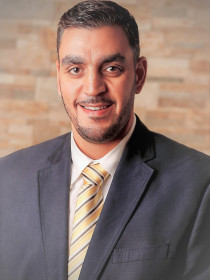
Amin Asfari
Connect with Amin
About Amin
Asfari conducts interdisciplinary research on topics like Muslims and police, white supremacists mass shooters, and more. He's published in journals, books, and speaks at major criminology events. Additionally, he serves on the board of the Western Society of Criminology and was nominated for the W.E.B. DuBois award.
Contributions
In the News
Publications
Examines the factors that shape American Muslims’ perceptions of police in the United States.
Highlights some of the common understandings of Islamaphobia by taking a multidisciplinary approach.
Describes and explores the conspiracist antecedent conditions which promote violence against and exclusion of both Jews and Muslims in America.
Explores causes of injustice and violence, and meaningful ways to address them in civilized, non-violent ways.
Examines the processes of Muslim assimilation into the United States through the lens of socio-religious factors.